Join the campaign against cyberviolence
- WISE

- Oct 1, 2021
- 1 min read
Updated: Jan 19, 2022

Cyberviolence refers to acts of harassment, threats, and intimidation using the internet, social media or other electronic devices/platforms. It impacts people emotionally, mentally, and physically – all of which can lead people to lash out or hurt themselves and others around them. Cyberviolence includes cyberbullying, cyberstalking and cybersex trafficking.
For Bullying Prevention Month and Domestic Violence Awareness Month, WISE is compiling resources to help create awareness about cyberviolence and share steps we can take to prevent online violence. Our resources are meant to be shared on social media platforms as a part of this month’s #BullyingPrevention and #DomesticViolenceAwareness campaign.
Minnesota Laws on Cyberviolence
Section 609.79 Obscene or Harassing Phone Calls and Messages: states that it is illegal to make obscene, lewd, or threatening phone calls to any person over the phone.
“Call” refers to “the use of any method of communication including, but not limited to: telephones, facsimiles, Voice over Internet Protocols, e-mail messages, text messages, and electronic transmissions of an image or video” (Section 609.78).
Section 617.261 Nonconsensual Dissemination of Private Sexual Images (Revenge Porn Law): makes it a crime to intentionally share or distribute images of another person who is depicted in a sexual act or whose intimate parts are exposed.
Minnesota Law on School Anti-Bullying Policy requires that all schools have an anti-bullying policy, which includes in-person and online bullying.
Cancel Culture
View our social media slideshow below on the impacts of cancel culture and what you can do to hold yourself accountable for this behavior.
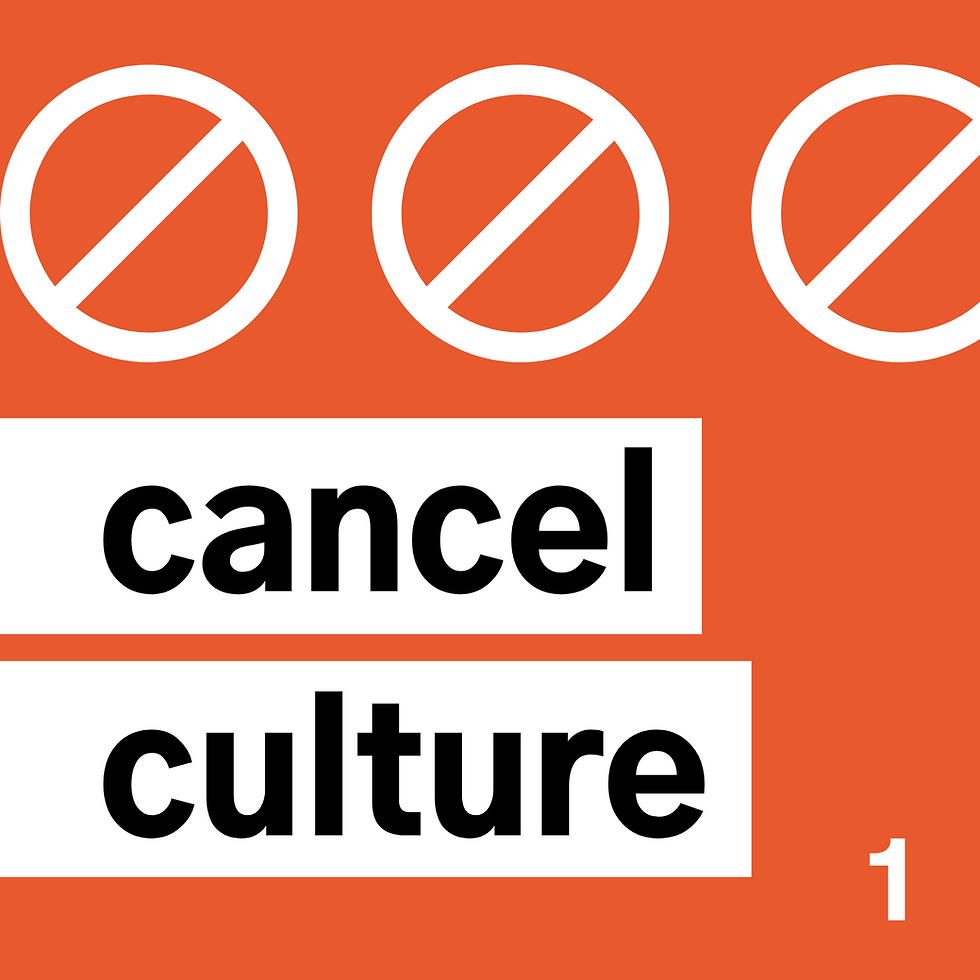
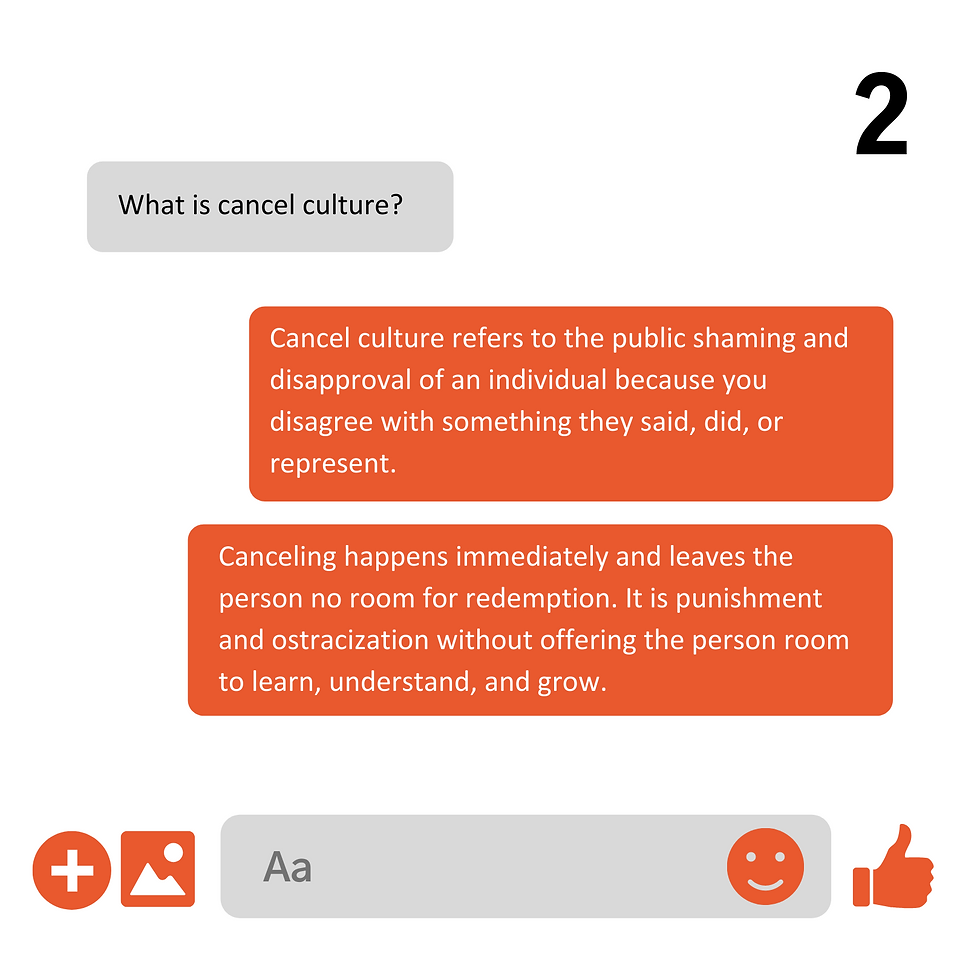
What is cancel culture?
Cancel culture refers to the public shaming and disapproval of an individual because you disagree with something they said, did, or represent. Canceling happens immediately and leaves the person no room for redemption. It is punishment and ostracization without offering the person room to learn, understand, and grow.
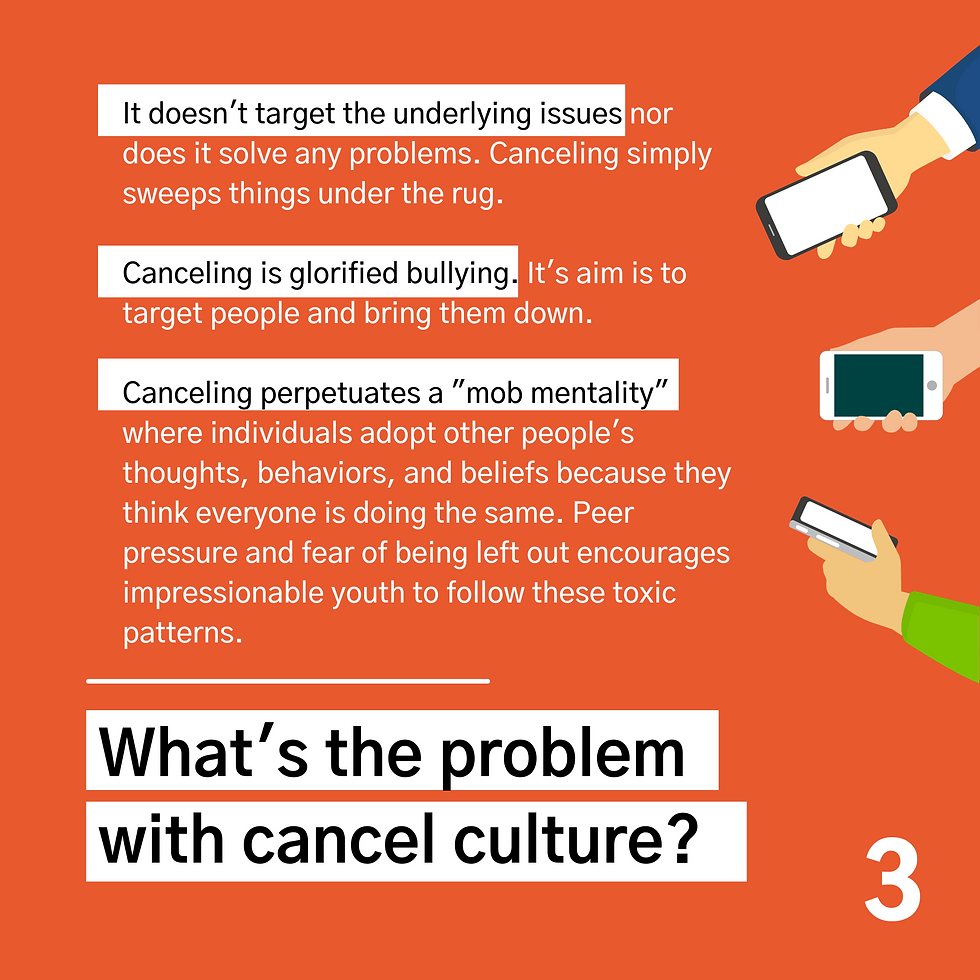
What's the problem with cancel culture?
Canceling is not a healthy online behavior as it promotes hate, cyberbullying, and ostracization. It perpetuates a mob mentality where individuals adopt the thoughts, behaviors, and beliefs of others because they think everyone is doing the same.
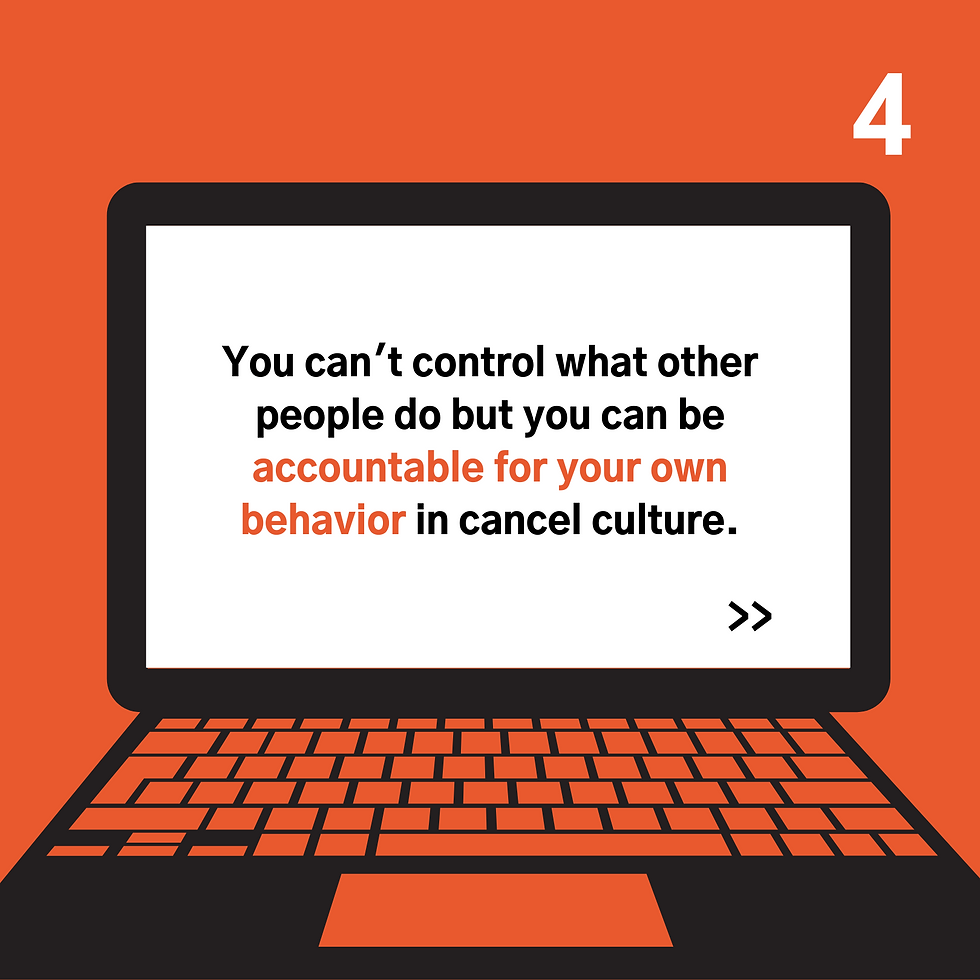
How can I be held accountable?
You can't control what other people do but you can be accountable for your own behavior in cancel culture.

When you feel like canceling someone, ask these questions:
Does this person have a history of picking fights online or being controversial? If yes, they are a repeat offender and no amount of reasoning can deter them. Ignore this person and save your energy. If no, perhaps this person is unaware or uneducated in the matter. It is up to you to get involved or give them a second chance.
Do they seem open to a peaceful debate? If yes, talk and try to see things from both perspectives. Whether or not you agree with one another, healthy conversations help us understand the reasonings behind our differences. If no, not everyone wants to be helped. Ignore this person and save your energy.
Cyberbullying
Cyberbullying refers to bullying over the internet or bullying using electronic devices and online platforms, such as through email and social media. Bullies use name-calling and derogatory and offensive language to attack others. This may include accusations, spreading rumors or sharing intimate pictures of the victim.
How to Handle Cyberbullies
Don’t feed the trolls! Responding to cyberbullies acknowledges them and only makes you more of a target.
Block the cyberbully and make sure you have the appropriate security/private settings set up on your social media account.
Document or take a screenshot of the cyberbullying in case the harassment persists. These can be used to support your case with law enforcement or other authority figures.
Report the events to a trusted adult or authority figure; or consult a trusted friend about what you can do. You do not have to deal with bullies on your own.
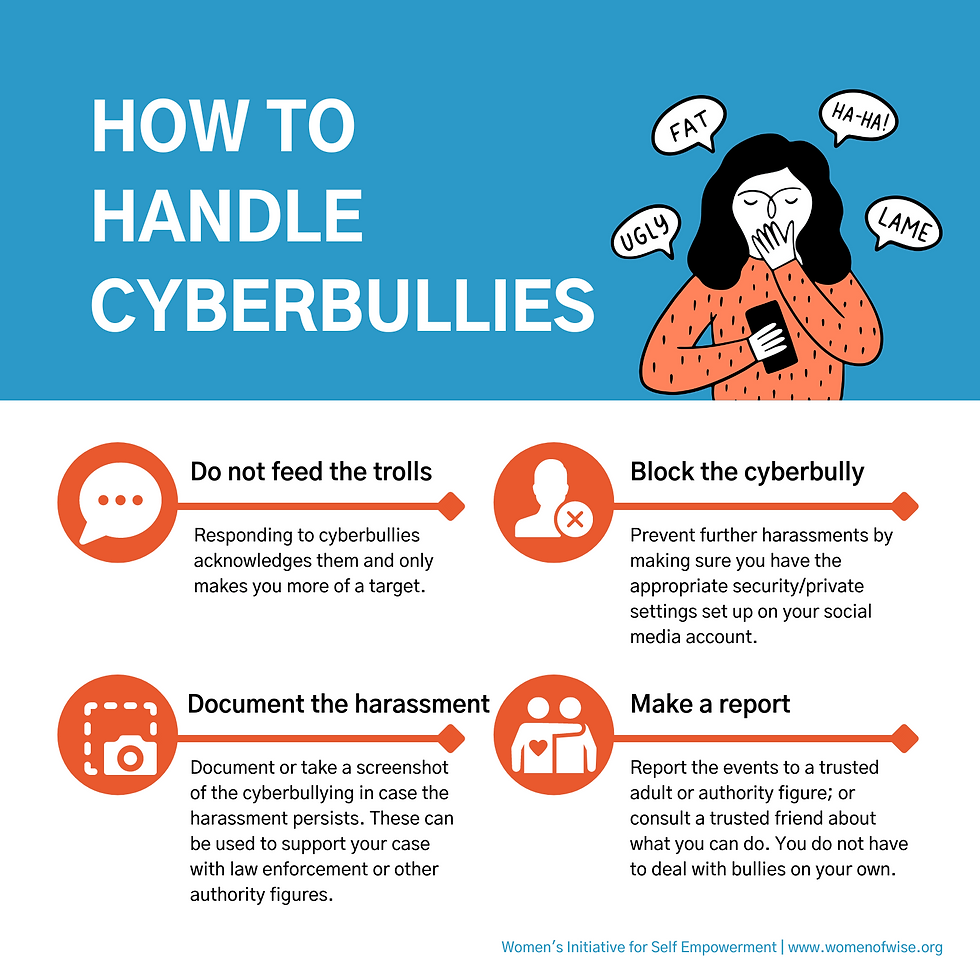
Cyberstalking
Cyberstalking is using the internet or other electronic devices to stalk and harass a person. Examples include a person excessively commenting on another person’s social media posts or messaging someone using lewd or intimidating language. Personal information you post online may be used by a cyberstalker to find you in real life. This is why it’s important to take the necessary precautions to ensure our privacy online.
All social media platforms have privacy and security settings that limit how you are seen on the internet. Navigate the privacy functions on your social media accounts and be conscious of the information you share publicly to avoid cyberstalkers. Below are some tips to avoid cyberstalkers and secure your privacy on social media:
Online Etiquette:
Never accept friend requests from people you don’t know.
Avoid using your full or real name in your online profile.
Be conscious of whether your post is being made public or private to only your friends/connections.
Don’t disclose your location in your posts or profile.
Create a strong password for all your social media accounts.
Security Procedures:
Set your online privacy settings so that your profile can’t be “searched” or recommended.
Set your online privacy settings so that your identity can’t be tagged in images without your permission.
Make sure your social media apps are updated so they can have the most up-to-date security.










Comments